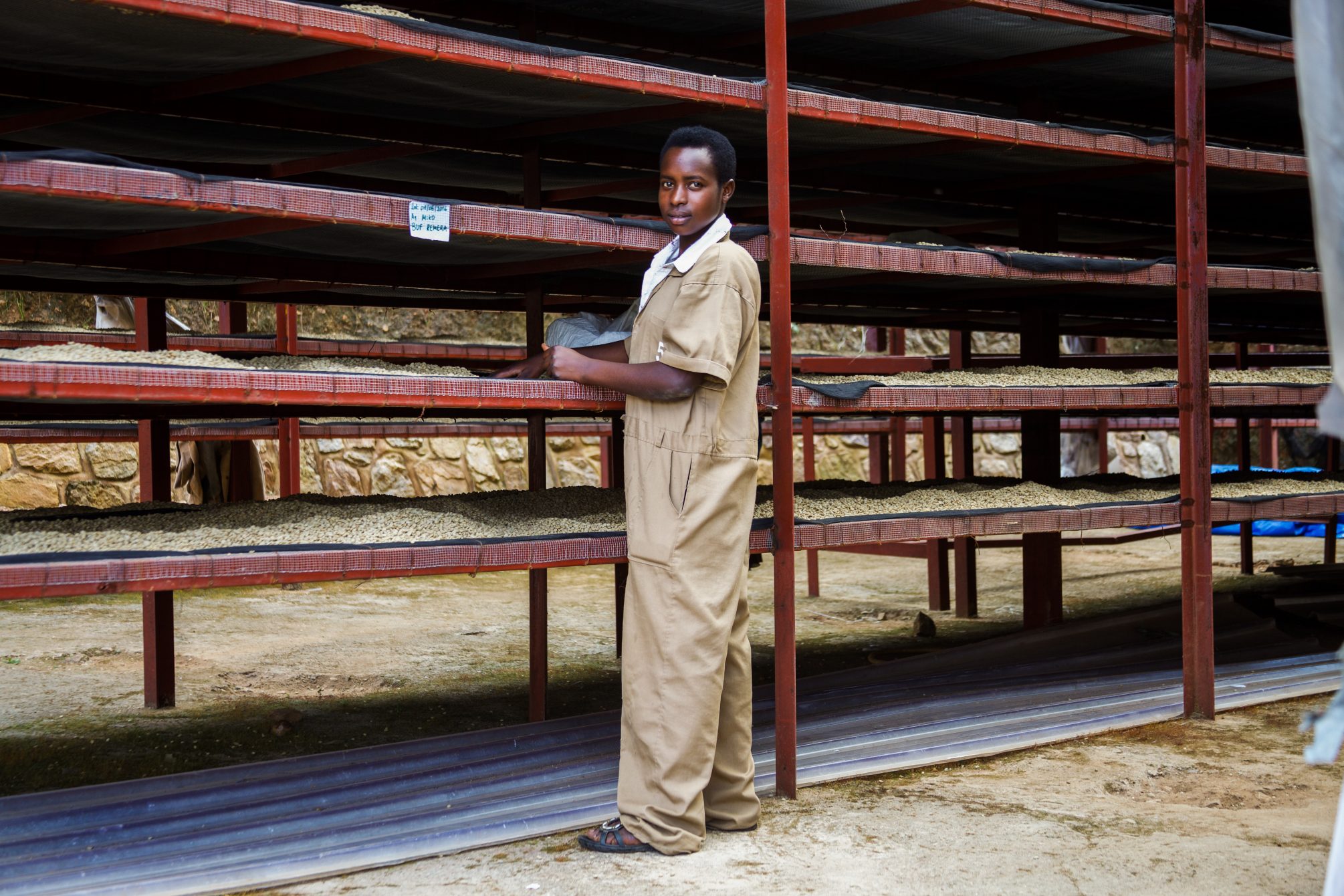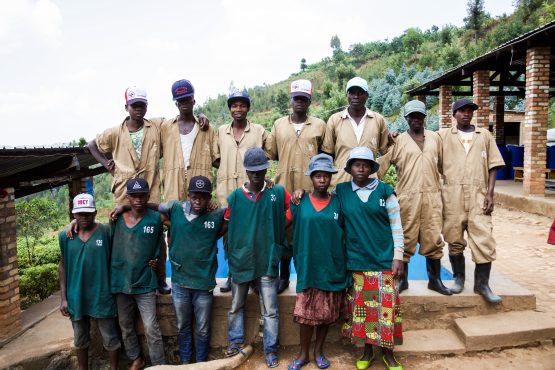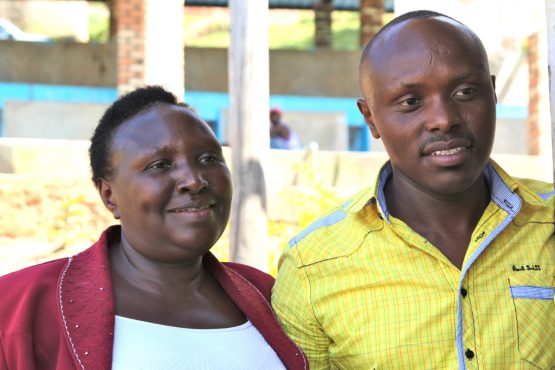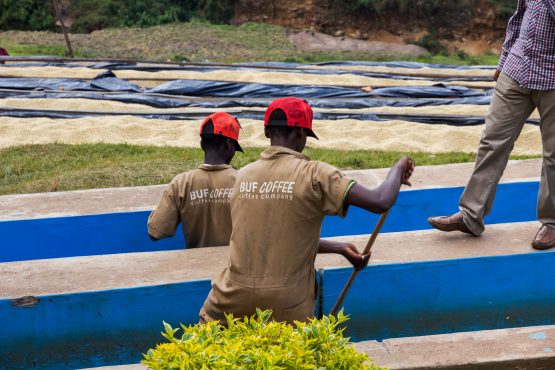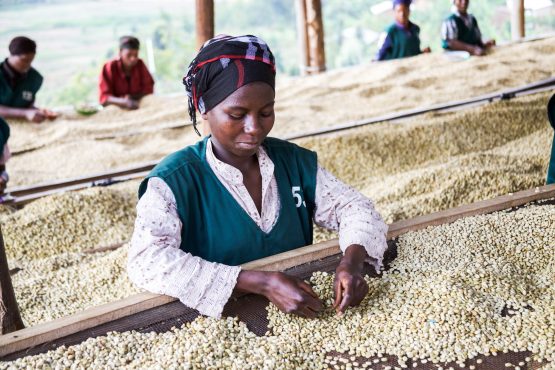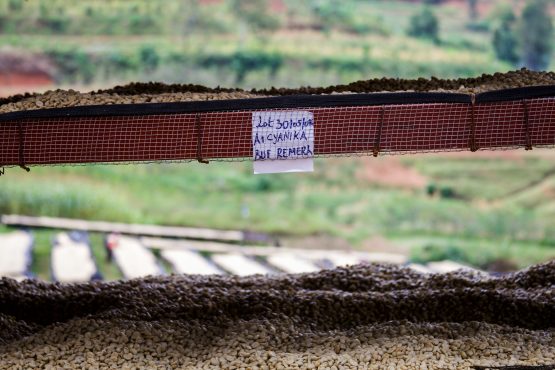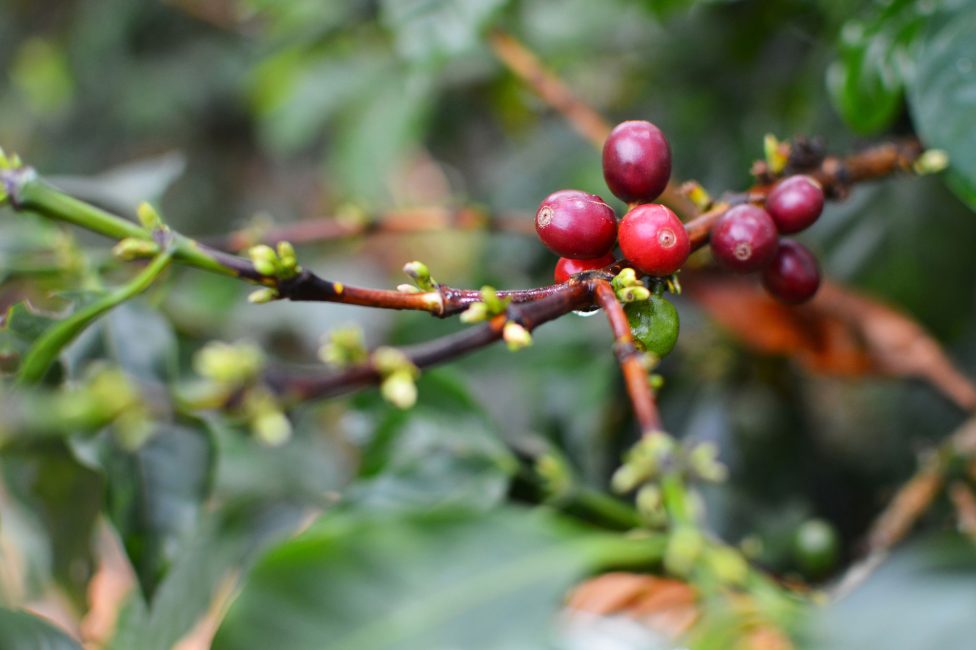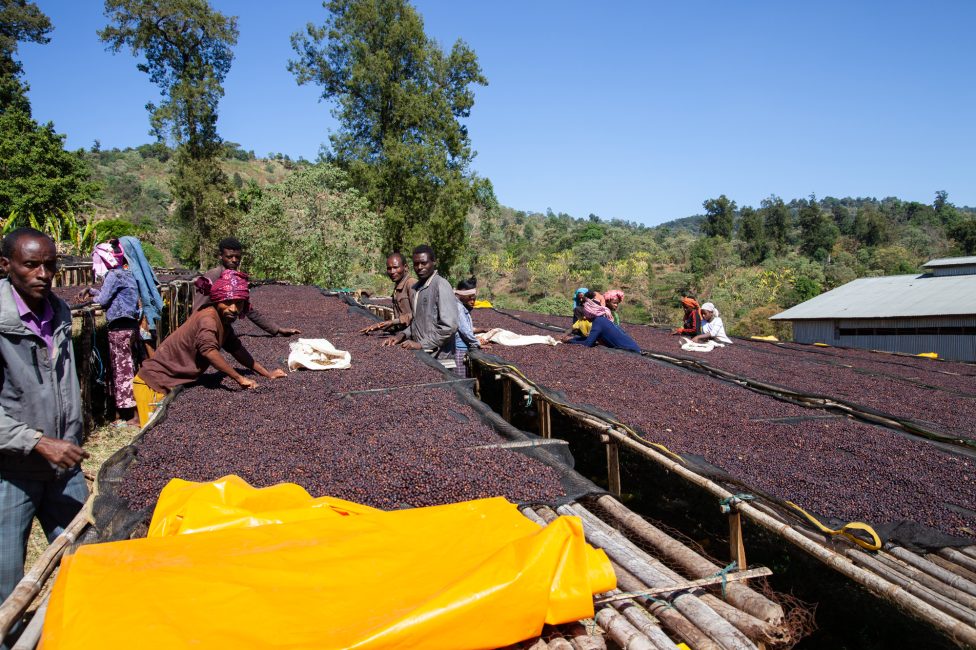Remera Shed Dried Micro-Lot 3
Bright with lifted acidity, floral black tea notes, almond, and a sweet honey finish.
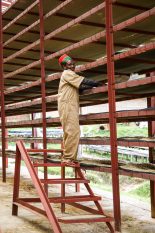
This is a very special 1.5-bag micro-lot is an experimental lot from Sam Muhirwa, who is one of the owners of Buf Coffee. Sam is the son of Epiphanie Mukashyaka and oversees the daily operations of Buf Coffee. Sam is extremely passionate about quality, and is curious, open, and committed to finding new and creative ways to produce exceptional coffee.
This coffee was meticulously sorted and processed and then dried in Buf Coffee’s new purpose-built sheds. Being dried in the purpose-built shed brings many gains: first, it enables better control over the drying process. The shed has many trays with curtains that can be opened or drawn closed or as the managers see fit to control airflow and temperatures. In the shed, the coffees are not exposed to direct sun or any elements, and so dry slowly and evenly. A dedicated team ensures the coffee is continuously turned and sorted within the confines of each tray. The end result is a cleaner and more defined cup profile, and, due to the slower drying time (4–5 weeks versus 2–3 weeks for traditional sun dried coffee) the lots also tend to have better longevity. This processing method is much more labour intensive than sun-drying, but more efficient in terms of space, as several layers of coffee can be stored on top of each other.
Sam is not one to do things in halves, and has invested heavily in building the sheds and is committed to seeing if this method of processing will improve the cup profile as he learns more about how to tweak his methods to positively impact cup quality. We were blown away when we saw these sheds in action this year (there are over 10 rows of coffee, requiring staff to use tall ladders to inspect and turn the coffee!) and we are very excited to taste how these coffees land and perform over time.
The coffee was processed at Remera washing station which is located at approximately 1,935 metres above sea level in the District of Nyamagabe, in the Gasaka sector. Farmers contributing to the Remera washing station own farms that are on average 1,750–2,100 metres above sea level.
ABOUT REMERA WASHING STATION
The Remera washing station is managed by Elias Dusabeyezu, who has been manager at Remera since 2007. The warehouse is impeccably managed by Alex Dushimimana and quality is overseen by an inspirational woman called Angelique Muhawenimana, who started her career as a coffee sorter and now heads up quality control at both of Buf’s washing stations. Together, they ensure that the coffee is harvested and processed with care and that production standards are kept at the highest possible level. Remera provides jobs for 60-80 people during the peak harvest and staffs seven permanent positions. At the end of each season, any surplus profits are shared with the producers and washing station managers.
ABOUT BUF COFFEE
Buf Coffee was founded in 2000 by Epiphanie Mukashyaka, a dynamic businesswoman and a source of inspiration to countless other female entrepreneurs in Rwanda’s coffee sector and beyond. Buf is now managed by Mukashyaka—known to all as Epiphanie—and her sons, Samuel and Aloys, who have taken an active role in running and expanding the business. The name ‘Buf’ derives from ‘Bufundu’, the former name of the region in which its washing stations are located.
Epiphanie lost her husband, a child, and many extended family members in the horrific genocide in 1994. She was faced with the responsibility of caring for her seven surviving children and rebuilding their life. With a limited education and little money or support, Epiphanie, whose husband was a coffee farmer, decided to focus on coffee, and set about rebuilding and developing a business, and with it the local community. She started to learn more about speciality coffee with the assistance of the USAID-financed Partnership for Enhancing Agriculture in Rwanda through Linkages (PEARL) project, a transformational programme aimed at switching the focus of the Rwandan coffee sector from an historic emphasis on quantity to one of quality—and so opening up Rwanda to the far higher-earning specialty coffee market. The programme and its successor, Sustaining Partnerships to enhance Rural Enterprise and Agribusiness Development (SPREAD), have been invaluable in helping Rwanda’s small-scale coffee farmers rebuild their production in the wake of the genocide, and the world coffee crash, of the 1990s.
Epiphanie went on to establish Buf Coffee, and decided to build a washing station, with the help of the PEARL programme and a loan from the Rwandan Development Bank. ‘I came up with the idea to build this,’ she says, ‘and nothing was going to stop me’. She established Remera Washing Station in 2003 and Nyarusiza in 2005, and was the first woman in Rwanda to hold a privately owned company and produce specialty coffee. Her aim with the washing stations was to improve the quality of coffee by shifting the focus from producing commercial coffee to producing high quality specialty coffee. In doing so, she aimed to add value to her processed coffee in order to secure higher and more stable prices for coffee farmers in the region. As a result, she not only improved the livelihood of her family, but also improved those of her neighbour farmers and wider community, directly by increasing their income (through higher prices paid for their cherry) and, indirectly, by bringing important services like safe water and electricity to their villages via the establishment of washing stations.
Today Buf Coffee buys coffee cherries from as many as 7,000 smallholder farmers, including five different local cooperatives. Buf has very strong links with the local communities that supply it, providing jobs for hundreds of locals during peak harvest (May–June/July) and ten permanent positions year-round.
The majority of the small farmers that supply Buf Coffee in the area have an average of only 300 coffee trees each (less than a quarter of a hectare), and also use their land to cultivate crops like maize and beans to feed themselves and their families. Most of their income from the sale of coffee is used to send their children to school, pay for medical care, and for investment in livestock such as purchasing a cow for milk, which is then used at home and for sale locally.
Buf Coffee’s exceptional quality has been recognised year after year. It was awarded a prize in the 2007 Golden Cup; and placed in the Cup of Excellence in 2008, 2010, 2011, 2013, and 2014.
HOW THIS SHED-DRIED COFFEE IS PROCESSED
- The ripe cherries are picked by hand and then delivered to the washing station—on foot, by bike, and by trucks that pick up cherries from various pick-up points in the area.
- Before being pulped, the cherries are deposited into flotation tanks, where a net is used to skim off the floaters (less dense, lower grade cherries). The heavier cherries are then pulped the same day using a mechanical pulper that divides the beans into three grades by weight.
- The beans (in parchment) are then dry-fermented (in a tank with no added water) overnight for 8–12 hours. They are then sorted again using grading channels; water is sent through the channels and the lighter (i.e. lower grade) beans are washed to the bottom, while the heavier cherries remain at the top of the channel.
- The wet parchment is then soaked in water for around 24 hours, before being moved to pre-drying beds where they are intensively sorted for around six hours. This step is always done whilst the beans are still damp because the green (unripe) beans are easier to see. It is also always done in the shade to protect the beans from direct sunlight (which they have found helps to keep the parchment intact and therefore protects the bean better).
- The sorted beans are finally moved into the sheds where they are carefully dried for 30-40 days. During this time, the coffee is sorted carefully for defects, and turned regularly to ensure the coffee dried evenly. Airflow and temperature are carefully controlled by raising and lowering the shed walls.
- Once at 11–12% humidity, the coffee (still in its parchment) is stored in the washing station’s warehouse, in carefully labelled lots, until it is ready for export. The coffee is then sent to Rwanda’s capital, Kigali to be dry-milled. Here the parchment is removed, and the beans are sorted again by hand and using machinery to remove any physical defects and grade by size and loaded into a sealed shipping container, driven to port, and shipped to us!
We have been working with Buf Coffee since 2009, and we feel privileged to work with such a dynamic, passionate, and committed family in Rwanda. We hope you enjoy this beautiful coffee.
